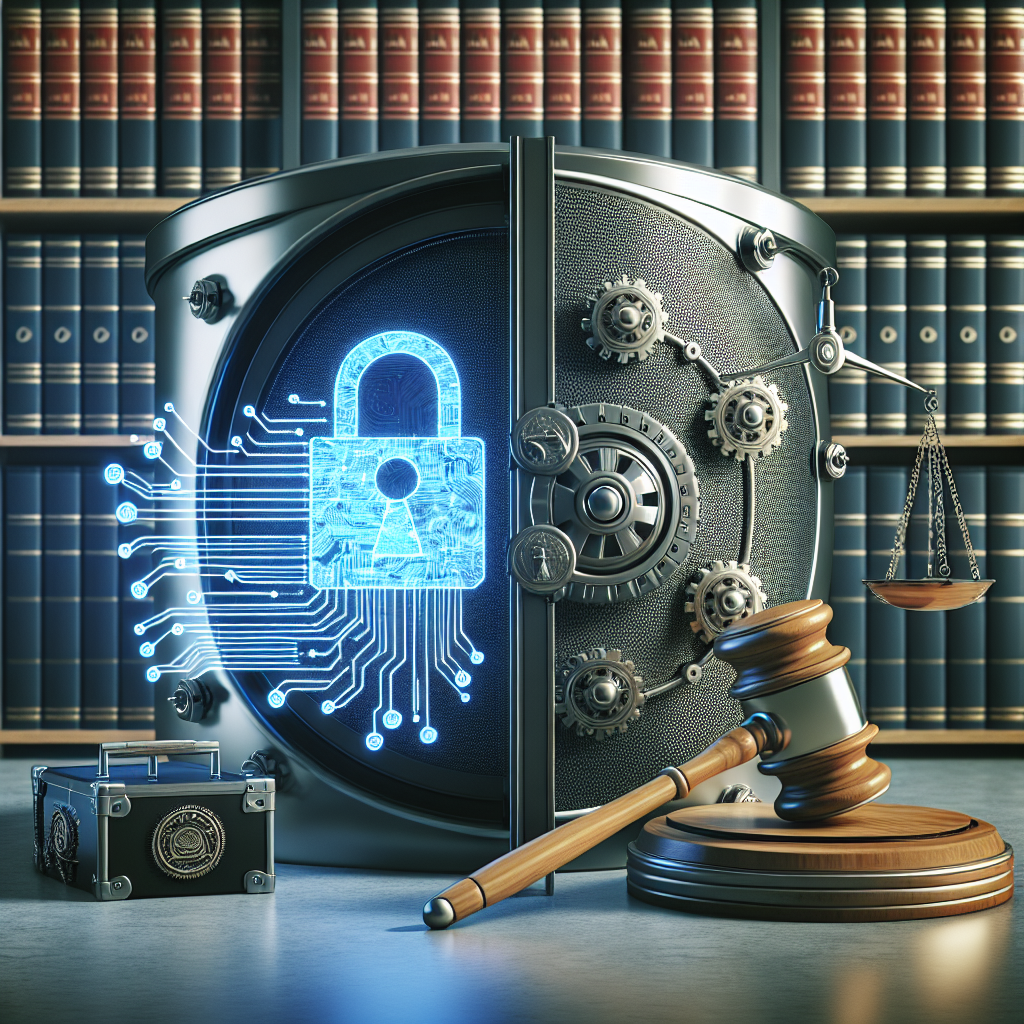Ensuring Data Privacy and Security in AI-Powered Legal Systems
In recent years, the legal industry has seen a significant shift towards the use of artificial intelligence (AI) technology to streamline processes, improve efficiency, and provide better outcomes for clients. AI-powered legal systems have the potential to revolutionize the way legal services are delivered, but they also raise important questions about data privacy and security.
As AI technology becomes more prevalent in the legal industry, concerns about the privacy and security of sensitive data are becoming more pronounced. Legal professionals must take steps to ensure that their AI-powered systems are secure and that client data is protected at all times. In this article, we will explore some of the key considerations for ensuring data privacy and security in AI-powered legal systems.
Data Privacy in AI-Powered Legal Systems
Data privacy is a critical concern in any industry, but it is especially important in the legal sector, where sensitive and confidential information is routinely handled. AI-powered legal systems have the potential to greatly enhance the efficiency and accuracy of legal processes, but they also raise important questions about how to protect client data.
One of the key ways to ensure data privacy in AI-powered legal systems is to implement robust data protection measures. This includes encrypting sensitive data, implementing access controls to restrict who can view and modify data, and regularly auditing and monitoring system activity to detect any potential security breaches.
Additionally, legal professionals must ensure that their AI systems are compliant with relevant data privacy regulations, such as the General Data Protection Regulation (GDPR) in Europe or the California Consumer Privacy Act (CCPA) in the United States. These regulations impose strict requirements on how personal data is collected, stored, and processed, and failure to comply can result in significant fines and reputational damage.
Security Considerations in AI-Powered Legal Systems
In addition to data privacy concerns, legal professionals must also consider the security implications of using AI-powered systems. AI technology relies on large amounts of data to train algorithms and make predictions, which can make it a target for cyberattacks and data breaches.
To mitigate these risks, legal professionals should implement robust security measures to protect their AI systems from potential threats. This includes regularly updating software and firmware to patch any vulnerabilities, using strong encryption to protect data in transit and at rest, and implementing multi-factor authentication to prevent unauthorized access.
It is also important for legal professionals to conduct regular security audits and penetration testing to identify and address any potential weaknesses in their AI systems. By proactively addressing security vulnerabilities, legal professionals can reduce the risk of data breaches and protect sensitive client information.
FAQs
Q: What are some common data privacy risks associated with AI-powered legal systems?
A: Some common data privacy risks associated with AI-powered legal systems include unauthorized access to sensitive data, data breaches resulting from insecure systems or practices, and non-compliance with data privacy regulations.
Q: How can legal professionals ensure that their AI systems are compliant with data privacy regulations?
A: Legal professionals can ensure that their AI systems are compliant with data privacy regulations by implementing robust data protection measures, conducting regular security audits, and staying up-to-date on relevant regulations and guidelines.
Q: What steps can legal professionals take to protect client data in AI-powered legal systems?
A: Legal professionals can protect client data in AI-powered legal systems by encrypting sensitive data, implementing access controls, and regularly auditing and monitoring system activity to detect any potential security breaches.
In conclusion, ensuring data privacy and security in AI-powered legal systems is essential for protecting sensitive client information and maintaining the trust of clients. By implementing robust data protection and security measures, staying up-to-date on relevant regulations, and conducting regular security audits, legal professionals can mitigate the risks associated with using AI technology in the legal industry.

